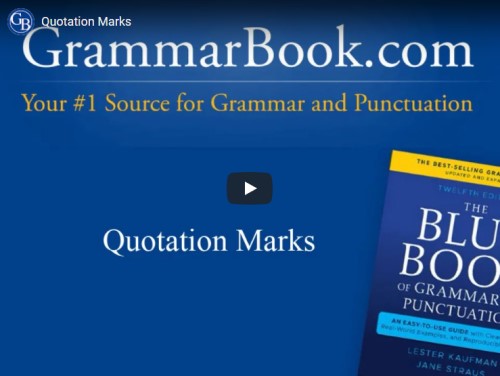|
The English we speak in the U.S. today represents centuries of influence, change, and inheritance. We can see this, for example, in how American English has been used in the 2020s as compared with during the 1820s.
We can also readily recognize differentiating factors such as how our word choices differ from those in other English-speaking countries such as Australia. What informs and separates features of American and Australian English?
American English: Origins and Influences
American English derives mainly from British English brought by settlers in the 1600s. As the settlers established communities, the English in America was further shaped by aspects including regional cultural differences and the isolation of some settlements.
The settlers' contact with Native Americans would echo into the language as well. Words such as moose, canoe, and raccoon were adopted from the natives. The names Chicago, Mississippi, and Massachusetts likewise have indigenous origins.
As more people from varying nations emigrated to the U.S., they brought with them words that would become woven into the American lexicon. The following are but a few examples.
| Language |
Words |
| Dutch |
cookie, boss, sleigh |
| German |
kindergarten, pretzel, zeitgeist |
| Spain/Mexico |
canyon, plaza, mosquito |
| France |
gentle, justice, cuisine |
| Africa |
banjo, safari, zebra |
| Jewish/Hebrew |
amen, kosher, mensch |
American English was also modified along the way by the spelling reforms of Noah Webster (1758–1843). In his first dictionary (1828), Webster changed existing British spellings such as colour to color, defence to defense, and recognise to recognize.
In more recent decades, American culture, innovation, and technology have created new words such as skyscraper, television, drive-thru, cool, hangout, and selfie. As we discuss in Generation Alpha Slang: An Introduction, we continue expanding our words and expressions in the U.S. to this day.
Australian English: Origins and Influences
Australian English, like American English, has its roots in British English. The first colonists in New South Wales (now Australia) arrived in 1788 as part of the First Fleet, a group of ships that set sail from Portsmouth, England, in May 1787.
The fleet arrived at Botany Bay in January 1788 and later settled in Port Jackson, which became the site of the first permanent European settlement.
Similar to its shaping in America, the English in use in Australia underwent additions and modifications due to developing slang, further immigration, local and regional isolation and adaptations, and contact with indigenous populations. With its distinctive terrain and wildlife, the Australian landscape would also factor into the country's use of English.
The following are just a few examples of the different influences on Australian English:
| Influence |
Words |
| Aboriginal languages |
kangaroo, boomerang, billabong (stagnant waterhole) |
| Early settlers, penal-colony slang |
tucker (food), swag (bundle of belongings), drongo (foolish person) |
| Landscape and environment |
outback, bush, bushranger (outlaw) |
Words also arrived in Australia from Chinese, Irish, German, and other immigrants during the nineteenth-century gold rush. Fossick (to search for valuables), bail out (to leave or escape), noodle, and fair dinkum (real or genuine) were just a few words added by the new arrivals.
In the twentieth century, driven by globalized U.S. pop culture and media, even some Americanisms entered Australian English, such as truck for lorry, cookie for biscuit, and the word cool.
Word Emphasis: American English
Behind each form of a language lies also its subjective perspective of the function of words. American vocabulary tends to aim for directness, innovation, practicality, and cultural influence, such as popular culture, intellectualism, and egalitarianism.
| Factor |
Words & Phrases |
| Simple, clear, direct |
fall (vs. autumn), soccer (vs. football), apartment (vs. flat) |
| Innovation, technology |
internet, email, online, hashtag, outsourcing |
| Individualism |
breakthrough, step up, go-getter, make it big |
| Slang, pop culture |
dude, chill, binge-watch, vibe, dope (awesome) |
| Commerce, consumerism |
branding, marketing, entrepreneur, venture capitalist, fast food |
| Casual, informal |
fridge (vs. refrigerator), movie (vs. film), "hey" (vs. "hello") |
Word Emphasis: Australian English
Australian English often represents the Aussies' informality, humor, abbreviation, love for excitement and sport, and resilient humility.
| Factor |
Words & Phrases |
| Convivial informality |
g'day (good day), cheers (thanks, good-bye), mate (friend [just about anyone]) |
| Shortened slang |
arvo (afternoon), brekky (breakfast), servo (gas/service station) |
| Humor, understatement |
she'll be right (it'll be okay), taking the piss (being made fun of in a friendly way) |
| Love for fun and sport |
footy (rugby or Australian-rules football), crikey (exclamation of surprise) |
| Resilient humility |
battler (no-quit underdog), tall poppy syndrome (inflated self-importance) |
American vs. Australian English: Same Meanings, Different Words
Now that we have some insight into the origins and emphases of American and Australian English, let's look at words that each uses to refer to the same things.
| American English |
Australian English |
| elevator |
lift |
| flashlight |
torch |
| trash/garbage |
rubbish |
| sweater |
jumper |
| French fries |
chips |
| chips |
crisps |
| gas |
petrol |
| highway/freeway |
motorway |
| turn signal |
indicator |
| car trunk |
boot |
| car hood |
bonnet |
| parking lot |
car park |
| principal (school) |
headmaster/headteacher |
| vacation |
holiday |
| flip-flops |
thongs |
| pants |
trousers |
| sneakers |
runners |
| shopping cart |
trolley |
| diaper |
nappy |
| stove |
cooker |
| comforter (bed) |
doona |
| firefly/lightning bug |
glow worm |
Language resembles people in that many variables form the way it exists in the world. Just as we are wonderfully distinct from one another yet common in our humanity, so does our vocabulary often reflect diversity with a shared, uniting foundation. American and Australian English give us but one illustration of communication's original colors.
Related Topic
American vs. British English: Vocabulary
|





